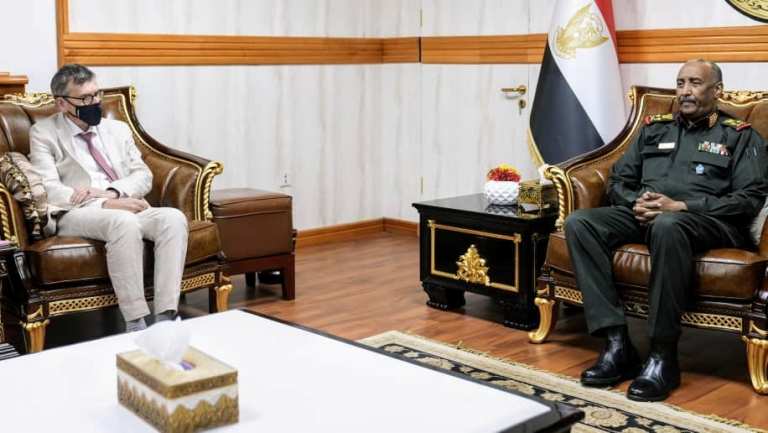The West’s struggle in Sudan
Three years after the historic ousting of the long-time dictator al-Bashir, Sudan’s revolution continues. The military coup of last October has effectively ended Sudan’s post-Bashir transition to democracy but has fanned the flames of the Sudanese people’s struggle for freedom, peace, and justice. Protesters from Sudan’s non-violent resistance movement continue to risk their lives by taking to the streets demanding the end of military rule and the transfer of power to a civilian government. The international community, however, has spent the last eight months trying to restore a power-sharing government whose very viability had become untenable.

SRSG for Sudan and Head of UNITAMS, Perthes, meets with the President of the Sovereign Council, al-Burhan, in Khartoum / photo by UNITAMS
Meanwhile, conniving with Islamist elements of the former al-Bashir regime, the coup alliance is cementing its stranglehold over the state. The historic opportunity for genuine democratic transition risks being lost. This policy brief argues that, by holding on to a transition that has ceased to exist, Western governments have helped consolidate the coup. To counter that course Western donor governments are well advised to 1) increase economic and diplomatic pressure on the coup regime, 2) strengthen the civil society that opposes the coup, and 3) safeguard aid against diversion and political manipulation.
Download policy brief.
For the Arabic version of this policy brief, please click here.



